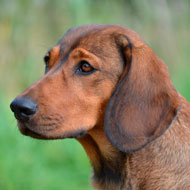Scientists trace spread of contagious canine cancer

The process of swapping mitochondrial DNA has occurred at least five times since the original cancer arose.
A transmissible form of cancer that spreads between dogs during mating has been traced for the first time.
‘Canine transmissible venerial tumour’ (CTVT) is a cancer that spreads between dogs through the transfer of living cancer cells.
The disease is the oldest and most prolific lineage known in nature - dating back approximately 11,000 years - and usually manifests as genital tumours.
Previous research into the disease found that, at occasional points in history, mitochondrial DNA has transferred from infected dogs to their tumours - and then to tumour cells in subsequently infected dogs.
Now, in a new study, researchers show that this process of swapping mitochondrial DNA has occurred at least five times since the original cancer arose. The discovery has enabled them to create an evolutionary ’family tree’ showing how the tumours are related to each other.
Furthermore, the unusual juxtaposition of different types of mitochondrial DNA within the same cell unexpectedly revealed that cancer cells can shuffle or ‘recombine’ DNA from different mitochondria.
Lead author Andrea Strakova, from the Department of Veterinary Medicine at the University of Cambridge, explains: “At five distant time-points in its history, the cancer has ‘stole’ mitcochondrial DNA formats host, perhaps to help the tumours survive. This provides is with a set of unique genetic takes to trace how dogs have travelled over the globe over the last few hundred years.”
One of the most surprising findings from the study related to how mitochondrial DNA transfers and mixes between the tumour and the host.
The researchers found that mitochondrial DNA molecules from host cells that have migrated into tumour cells occasionally fuse with the tumour’s own mitochondrial DNA, sharing host and tumour DNA in a process known as ‘recombination’. This is the first time this process has been observed in cancers.
Scientists are now looking to explore how this process may help cancer cells to survive and if blocking it may stop cancer cells from growing.
The study, Mitochondrial genetic diversity, selection and recombination in a canine transmissible cancer, is published in the journal eLife.



 The latest
The latest